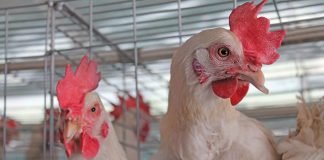The illegal hunters trespass, cut fences and their dogs attack livestock as well as game, said Koos Marais of the KZN Agricultural Union’s Security Desk. Landowners are reportedly also frustrated at struggling to secure successful prosecutions of offenders caught on their properties. According to Samson Phakathi, a senior field officer with the Endangered Wildlife Trust (EWT) in KZN, there appears to be a lack of knowledge of their rights among landowners and a lack of knowledge of the law among the hunters.
Easier said than done
“If there is evidence of unlawful hunting on their land, landowners can actually apprehend the people,” said Phakathi. But the landowners must get as much evidence as possible, such as photos and witness statements in order to justify the arrests and to ensure a prosecution. Phakathi also said that district conservation officers can be contacted for help. However, as Marais points out, landowners who catch hunters in the act are often outnumbered and outgunned and so are unlikely to be able to make arrests. In addition, if the police have been called, the hunters and their dogs have fled by the time the police arrive.
Armed gamblers
Nikki Brighton, of the Dargle Conservancy in KZN, said the main motivation behind the illegal hunting was gambling. The winner is the one whose dog is the first to bring down a wild animal. Prizes can be as high as R30 000, while the dogs themselves are also considered extremely valuable. The owners, meanwhile, are passionate gamblers from the taxi industry and often heavily armed, said Brighton.
“Unfortunately, endangered wildlife species, like oribi, are very often the victims of the hunts, although the dogs kill everything in their path.” Brighton said consideration should be given to arranging legal hunts, where dogs chase decoys instead of live animals. Meanwhile, the EWT continues to hold workshops for landowners and hunters to highlight the issues surrounding illegal hunting with dogs, he said. It has also translated and distributed legislation related to this topic in the areas where the illegal hunters live. “Fortunately, there have been no recent reports of big conflicts between landowners and hunters,” said Marais.











